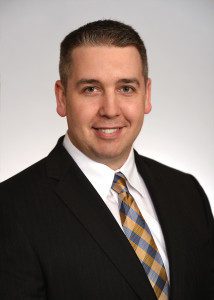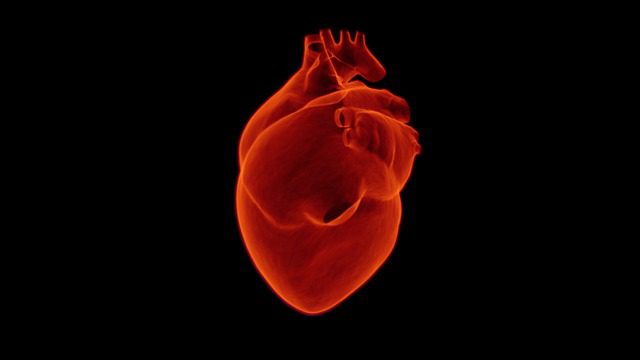Dr. Jared Green: Having a Heart to Heart About Health and Fitness
When it comes to heart health, having a strong ticker is always something to strive for. When people stop focusing on their health, sickness has a chance to rear its ugly head into our lives and those around us.
As statistics show, many times it’s in the form of cardiovascular disease (CVD) — the leading cause of death for both men and women. On average, around 610,000 Americans die each year from cardiovascular disease. And here’s a scary statistic for you from the CDC… someone in the United States has a heart attack every 42 seconds.
Our heart, unfortunately, isn’t something we can simply throw a Band-Aid on or give it a kiss if something goes awry. Therefore, it’s best to make health and fitness a priority in your life and be proactive. However, if something does happen, you’d be in good hands with Dr. Jared Green, DO, FACC.
Below is an interview conducted by Matt Weik on how health and fitness not only plays a role in Dr. Jared Green’s life, but also his profession as a cardiologist.

Matt Weik: Can you tell us the kind of profession that you are in, where you work, and what you do in your line of work?
Dr. Jared Green: I am a cardiologist for Tower Health Medical Group. I am board-certified in internal medicine, cardiovascular diseases, adult echocardiography and nuclear cardiology. I am board eligible in computer tomography and angiography of the heart, vascular medicine and vascular ultrasonography. I am the director of the congestive heart failure program. I practice as a noninvasive cardiologist who specializes in clinical care and imaging.
Matt Weik: Would you say your overall health and fitness has been an improvement to your life? If so, how, and what does your fitness and nutrition plan look like?
Dr. Jared Green: Health and fitness has revitalized my career, happiness and body. During my cardiology training I got married and started a family. Providing for my family and completing my training took priority. I put on 45 lbs, took on poor sleeping habits and my confidence took a hit. No one wants to be told to diet and exercise by the overweight Cardiologist.
My journey started with a Garmin Nuvi given to me at Christmas. I was pissy about it until March when I began a walking program. July I began focusing on a low carbohydrate/ketogenic diet. In October I progressed to weight training. Currently, I do giant sets (more than 4 movements consecutively) with active recovery for 90 seconds between sets. I rotate between full body workouts and standard splits (chest, back, biceps, shoulders, legs).
Matt Weik: What would you say is the percentage of patients you see who do not exercise regularly?
Dr. Jared Green: As a cardiologist, there is a selection bias on my clients. Easily that number is over 90%. Some of that is a function of getting so sick it’s tough to exercise at all, but mostly it’s due to a lack of interest, education or time.
Matt Weik: What is the most common problem you see in the hospital and could those problems have been prevented or minimized through a healthy diet and exercise?
Dr. Jared Green: Congestive heart failure and coronary artery disease are the top two things we see in the hospital. Very easily both of these can be prevented and subsequently treated by diet and exercise.
With relation of congestive heart failure, this is a disease where the heart cannot pump blood to meet the demand of the body. The two most common causes are coronary artery disease and chronic uncontrolled hypertension. Congestive heart failure patients must have a low-salt, volume control diet where they drink less than 64 ounces of fluid per day.

In coronary artery disease, a healthy diet and exercise are the keys to prevention. Unfortunately, in my line of work I’m finding my patients along the disease continuum far too late for prevention. You don’t come see a cardiologist when you don’t have cardiac complaints. Generally, I see patients long into their disease course where they are already scared to do activity because of symptoms or simply unable to complete it. I know a healthy diet has many different definitions but generally what I prescribe to patients is something along the paleo diet. Successful diets all have the same components: they are high in vegetables, satisfying in taste, do not make you hungry and if you were trying to lose weight there must be a caloric deficit.
Matt Weik: Do you find that after someone has heart issues, they change their habits and begin focusing on their health, nutrition, and physical activity levels?
Dr. Jared Green: Unfortunately, the overwhelming majority do not. Major excuses include: I don’t do the cooking, it’s too expensive, don’t have the time, I have to work too much, and under education. At least 10-15 minutes is spent reviewing diet and exercise during my 30 minute visits. Every patient I see will have to answer this question “what did you eat for dinner last night?” You can learn a lot about a person from that answer. Frequently people believe they are doing well with regards to sodium, carbohydrates or calories just to find out they don’t really have a handle on it.
Matt Weik: What is one take-home message you want everyone to think about or understand before we sign off?
Dr. Jared Green: If I could speak to my 30-year-old self, I would tell him to sleep more. I’m still working off my sleep debt from residency, raising a family, fellowship and taking call. Overall I believe sleep is paramount, followed by nutrition and exercise. If you have these three aspects of life in control you have the best chance at a long, happy and healthy life.
Matt Weik: Is there anyone you would like to thank or any shout-outs you’d like to give to close out the interview?
Dr. Jared Green: There are far too many people that supported, educated and challenged me along the way to thank just a few. I do appreciate the support that you have provided me since we have met. You motivate me to keep pushing by example and by allowing me to bounce topics off you.
Dr. Jared Green, DO, FACC
If you wish to learn more about Dr. Jared Green and his specializations, please visit the Tower Health Medical Group website.


*Disclosure: This article may contain affiliate links or ads, which means we earn a small commission at no extra cost to you if you make a purchase through these links. These commissions help support the operation and maintenance of our website, allowing us to continue producing free valuable content. Your support is genuinely appreciated, whether you choose to use our links or not. Thank you for being a part of our community and enjoying our content.
PLEASE CONSIDER SHARING THIS ON YOUR SOCIAL MEDIA TO HELP OTHERS LEARN MORE ABOUT THIS TOPIC.





